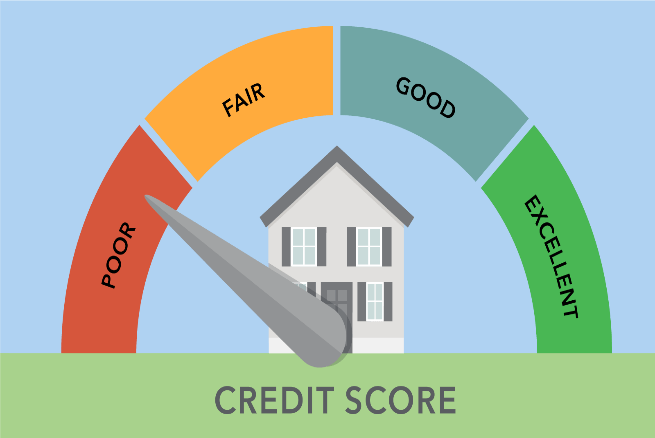Credit - How to deal with bad credit or no credit
How to deal with “bad credit”— or no credit — when you want to buy a home
Buying a home is exciting. It’s also one of the most important financial decisions you’ll make. Choosing a mortgage to pay for your new home is just as important as choosing the right home.
If you would like to buy a home, but are worried about your credit, you are not alone. Many of the millions of people who lost their homes during the financial crisis are considering home ownership again. Others who have struggled financially in the past are considering buying their first home. Still others dream of buying a home, but do not have sufficient credit history. In fact, more than 45 million American adults have no credit score because they have limited or no credit history.
First things first
Improving your credit
Rebuilding your credit (or building it for the first time) won’t happen overnight. Beware of anyone who claims that they can “fix” your credit quickly for a fee. It could be a credit repair scam. There are no shortcuts to building a good credit history; it takes time and making regular payments to your accounts.
Bankruptcy, foreclosures, and defaults (failing to fully pay back a loan) can lower your credit score by up to a few hundred points. Late and missed payments also lower your score. Negative items can generally remain on your credit report for seven years, though their effect on your credit score decreases with time.
Your credit scores are based on the information in your credit report. Your credit report is based on information reported by lenders and others about your credit behavior and payment history. When you make positive changes to the way you handle credit—such as paying down balances and consistently paying bills on time—these changes will be reflected in your credit report. As the most recent, more positive information begins to replace older, more negative information, your credit scores will improve.
Here are some tips for improving your credit history:
Credit Matters
Need more help? Meet with a counselor
A non-profit credit counselor or a HUD-approved housing counselor can help you make a plan to improve your credit. Credit counselors can help you with improving your credit, money and debt management, budgeting, and other general money issues. Counselors discuss your entire financial situation with you, and help you develop a personalized plan to solve your money problems. Learn more about how and where to find the best credit counselor for you.
Housing counselors have training specific to buying a home and getting a mortgage. A housing counselor looks at your credit, income, and other financial information to help you understand how a mortgage lender will judge your application. A housing counselor can help you decide whether now is the right time to pursue buying a home, or whether you are better off waiting until you have improved your credit.
A warning about subprime mortgages
Some lenders may offer “subprime” mortgages to prospective borrowers with lower credit scores. A subprime mortgage simply means that the terms of the mortgage are not as good as the terms offered to “prime” (high credit score) borrowers. Subprime mortgages have significantly higher interest rates than prime mortgages. This means that the payments may be significantly higher than for prime mortgages. Often, subprime mortgage loans are adjustable rate mortgages (ARMs). The interest rate on an ARM can rise significantly over time. Subprime loans may also have other risky features, such as negative amortization. During the foreclosure crisis, many borrowers with subprime mortgages faced sharply increased mortgage payments and were unable to make those payments.
The best way to protect yourself from the risky and expensive features associated with many subprime mortgages is to check your credit report and understand your credit standing before you begin. You may be eligible for a “prime” mortgage. It’s important to shop around with multiple lenders and ask lots of questions. By comparing options from several different lenders, you’ll be able to tell when you are being offered a good deal. Our interactive sample Loan Estimate tool will help you review your offers to make sure you get the best deal. A HUD-approved housing counselor can also help you assess the loan offers you receive.
Source: CFPB





